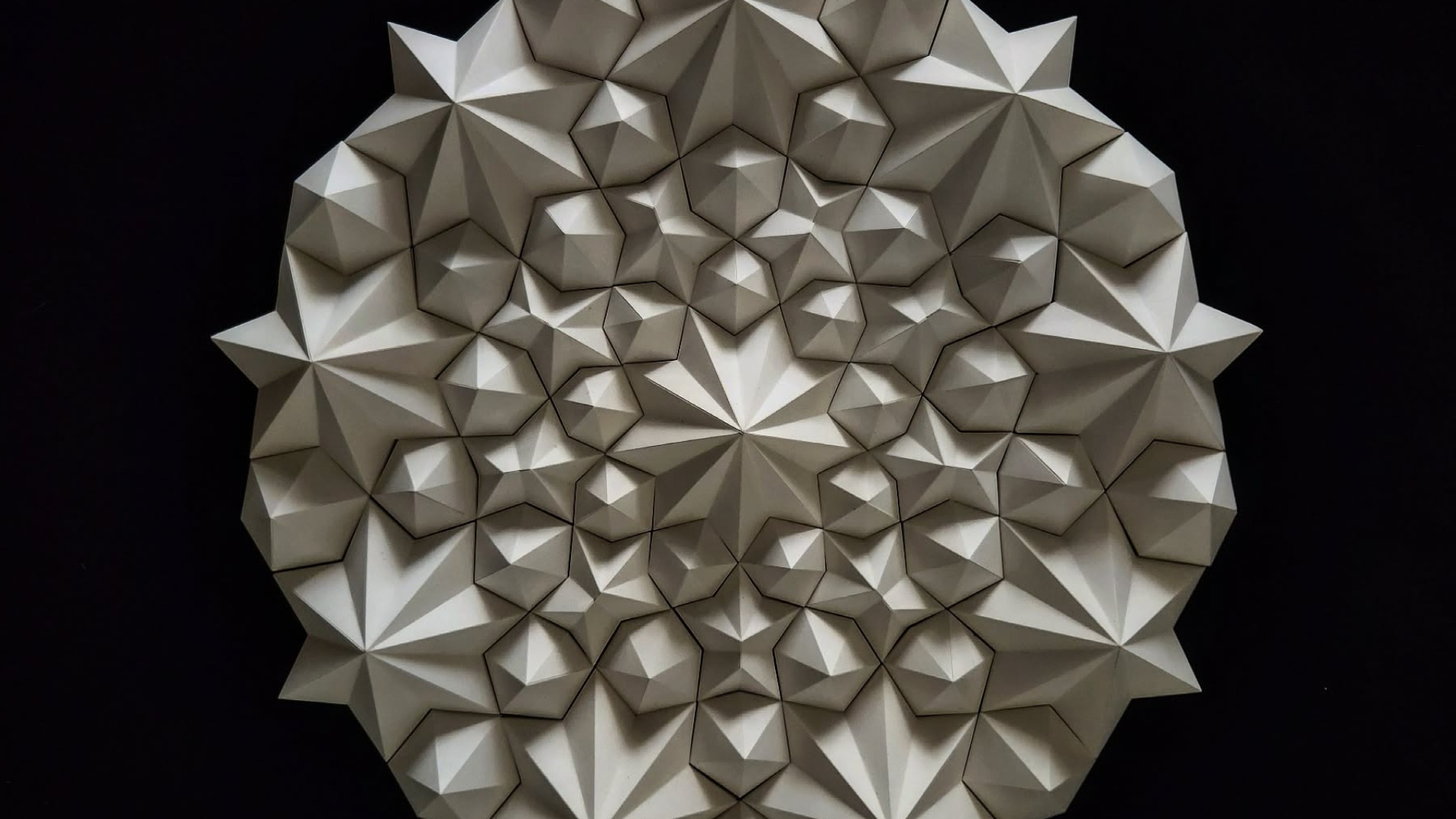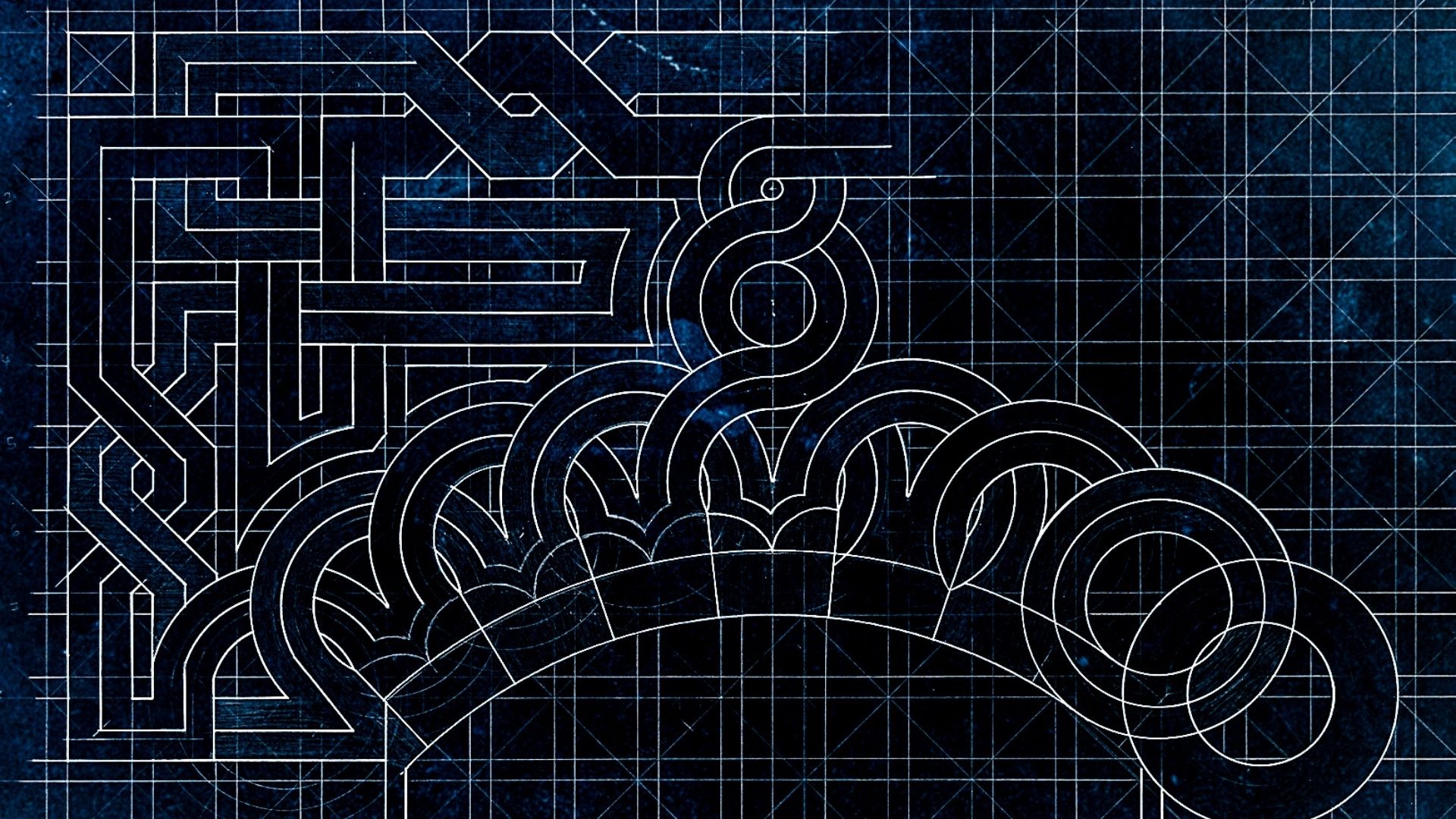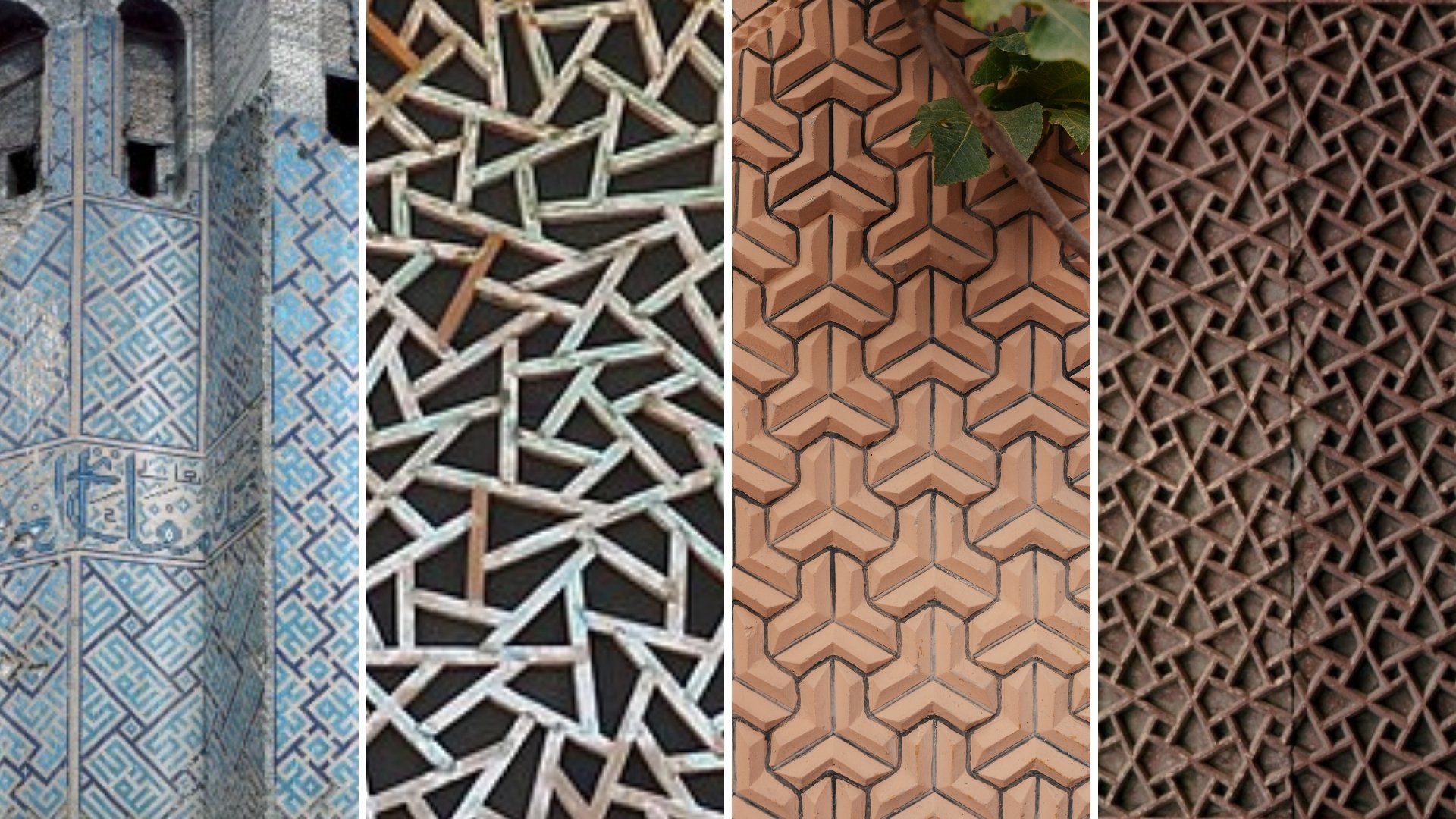About
This course focuses on folding patterns using a mathematical framework that colors Islamic patterns as a fun base and result for paper folding. We will go through the work of many of the great minds of origami and Islamic architecture and from these fields interpret ideas we can harness. The tutor will demonstrate techniques with clear diagrams and video material to shoow how a person may take advantage of what is already there. When we fold we do not add or subtract from the material, we simply transform that which is with what it is. In this sense, the patterns we will contemplate and produce are waiting on the surface.
The course is made up of five sessions, one per week, each of which goes over a series of topics with pre recorded material ready to guide into the matter at hand, as well as extra exercises available for the committed student looking to direct their journey towards the advanced and elaborate. Therefore, these sessions are designed for beginners and initiated alike. The sessions follow each other logically and are meant to equip the student with tools so to explore and apply the knowledge arrived at where it may fit.
We will be going over the stunning and satisfying art forms of origami and Islamic Patterns through comprehensive step-by-step processes that tie both these folded worlds together. The tools implicated and to be honed will empower the student with a novel way to look at the familiar.
Course structure
Session one introduces students to the names of the origami different folds, and how to read instructions. We also go into the ways to disperse energy within a surface, the fold axioms, some theorems from classical geometry as well as from folding, and from this session get obtain modular units, the ability to think in ratios, beautiful geometric solutions in the form of collapsible forms and divine incidence rectangles and some fun cute folded animals. In the more advanced material we go into the framework of divine ratios and the full catalogue of folding forces.
Session 2 is about Islamic patterns, symmetry groups, circle packing and mirrors. This session has us fold elemental Islamic patterns with a special focus on constructing the structure so to find variations and/or new patterns. We also learn about the ways in which the structure can help us further a pattern and how imagining the Islamic pattern as a game of optical geometry provides ample range for a fundamental understanding of the principles within Islamic Patterns. In the more advanced nuanced material we go into the Polygons in Contact approach, and finally a notation system inspired by the work of mathematician and paper folder Jacques Justin.
Session 3 is about the symmetries of Islamic Patterns and how we can build the basis for these symmetries using folds, that is to say, constructing specific angles at specific points. We use the methods seen in this and the last session to analyze patterns from Egypt, India and Turkey. The idea is to present the idea that certain approaches to patterns are characteristic of a place and time and that we can modulate the sections of the patterns so as to make it easier for us to construct and handle them.
Session 4 is about combining compass and straightedge with folding to trisect angles, and design 3D pieces from the patterns we constructed in the previous sessions. We will see how with simple tools, both digital and analog, a person is able to displace information in several dimensions to produce different and interesting results from the same source. We will also be discussing different approaches for copying and reproducing what we design. Each student will necessarily develop their own sensitivities and limitations. This session will present the solutions, but the true mathematical underpinnings are beyond me, but an attempt to at least state the nature of why it works will be ready for those interested.
Session 5 is about letting go. We go over some more patterns, ways to turn the minimal triangles into probable bases for animals or other interesting structures, touch on inscribing information in other dimensions and how Islamic Patterns hold many solutions within their schemes and formations. We will fold more figurative things and I will attempt to show how different materials can serve just as well as paper. We explore together, share our findings and say goodbye.
Key Information
Who is this course for?
All levels of ability and experience are welcome. You must be aged 18 or over to participate in our programmes.
What dates/times do I attend?
Wednesdays, 1, 8, 15, 22, 29 October 2025, 15:00 – 18:00
Please note times for 1 – 22 October are given in British Summer Time (GMT+1). On 26 October, the UK will switch to Greenwich Mean Time (GMT).
What materials do I need?
- Easily folded paper (A4, or any paper)
- Craft knife or Exacto knife
- Ruler
- Sticky tape
- A standard compass. We recommend the Mars Staedtler 551 02 Comfort Bow Compass.
- Pens and pencils of choice
Online Learning
How do I attend the online class?
This class will take place on Zoom, an online meeting platform. A link for joining the Zoom meeting will be sent before the start date.
Handouts and recordings of sessions will be made available via Thinkific, our online learning platform, for a period of 3 months after the end of the workshop.
What if I have questions during the workshop?
Students will be able to ask questions via chat or unmuting themselves. Students will also have access to our online learning platform, Thinkific, where we share supplementary content.
I live in a different time zone, can I still attend?
We encourage you to attend the course in real time to really benefit from instruction; however, if you are unable to attend live due to the difference in time you can catch up via recordings on our online learning platform, Thinkific. These recordings are available for a limited time after the course.
Recordings cannot be purchased separately if the course is fully booked or if the course has already started.
Tips:
You must download the Zoom app and create a free account before the class begins, so that you can use the full range of features:
- You can create your free account here
- You can download the Zoom app onto your computer or device here
FAQs
Do you offer concessions?
Yes, we offer concessions for Seniors/60+, full-time students and people who are unemployed/in receipt of benefits.
Concessions cannot be applied in retrospect. To receive a concession, please apply via our online form. We will then send you a discount code to use when booking your space.
What if I need to change or cancel my booking?
No refunds, unless cancelled by the School. If you cancel up to 1 week before the workshop starts, we can offer a transfer to another workshop of equivalent value, subject to availability.
Tutor Biography
Ricardo Hinojosa (Kamikyodai) is an artist from Monterrey, Mexico. He is interested in patterns and spatial forms. On a hunch he went to Spain to learn about Islamic Patterns and found enormous opportunity as he perfected the ability to transform traditional geometrical construction instructions into lines on paper.


